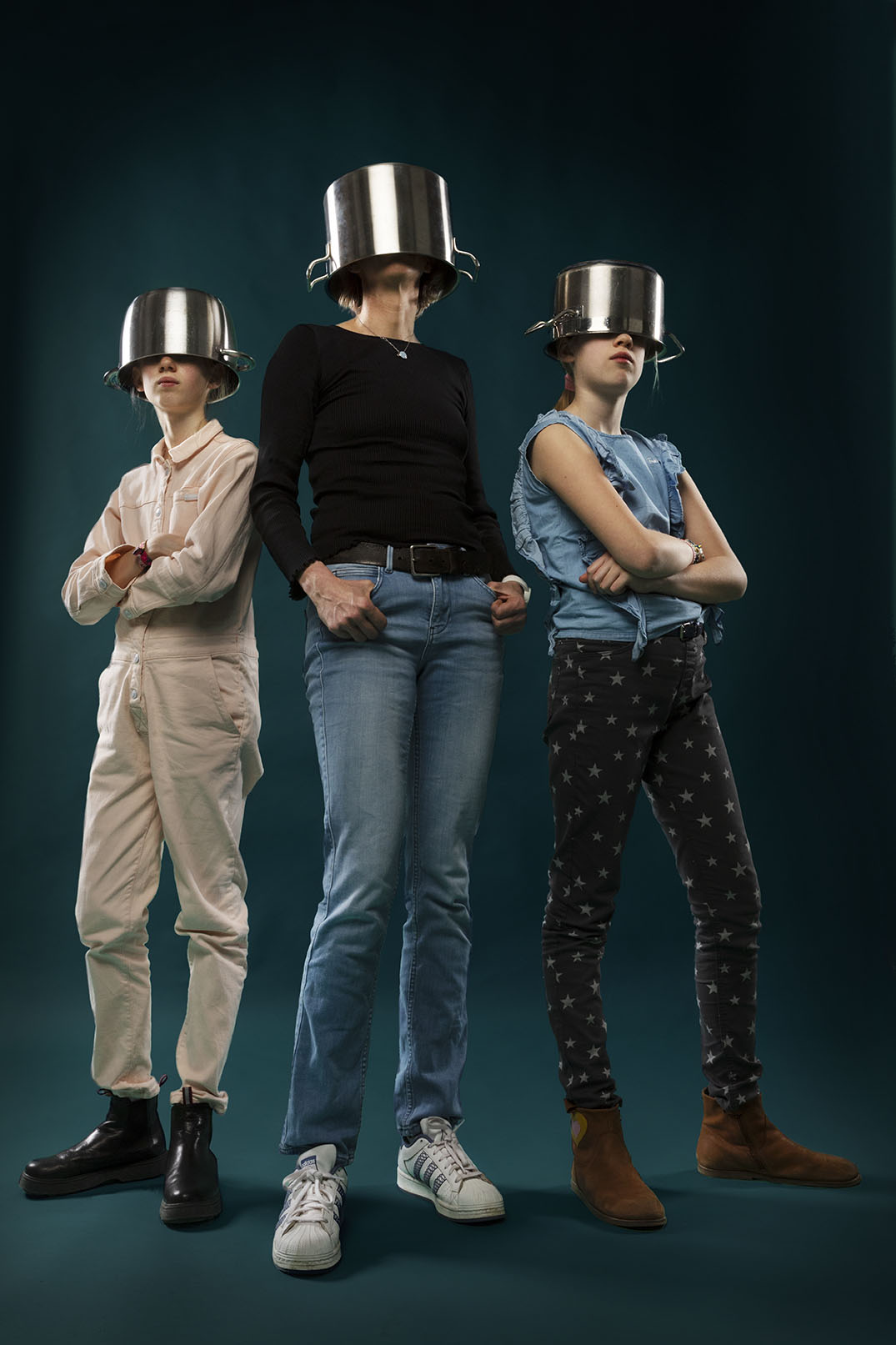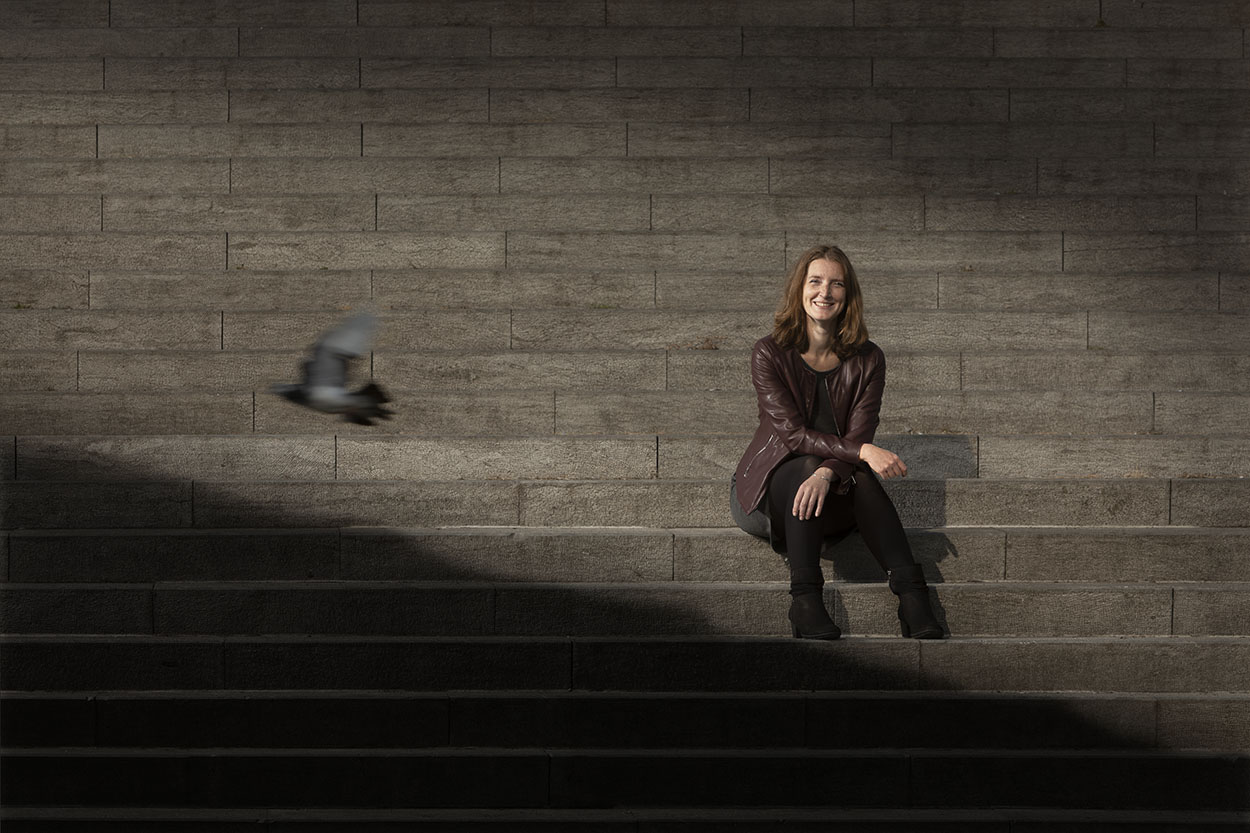Soft landing in Vienna
After several rocky years, Maastricht University alum Lea Vink has found her feet in Vienna. Professionally, she is taking new steps at the crossroads of aviation and organisational psychology. And on a personal level, luck has smiled on her since her transition from man to woman. Here she discusses unconscious mistakes, the importance of applied psychology and being ‘normal.’
She hopes people see her first and foremost as a good person, then as a researcher, and only then as transgender. “I've always been Lea, after all. Growing up in Singapore and New Zealand, I knew from a young age that I wanted to be a girl. But I was raised in a fairly conservative environment and was afraid to come out. My parents thought a stint in the army would do me good. I hid my feelings for years.”
Until she found herself in Vienna for her work, that is. “My current employer is very empathetic and really prioritises employees’ wellbeing. That’s not the case everywhere, unfortunately. It was the first time I felt I didn’t have to pretend to be something I wasn’t. During the corona lockdowns everything just came out and I decided to transition. The relief was sensational.”
A safer airspace
Vink is head of Human Performance Management and Human Factors at Austro Control, an organisation that monitors Austrian airspace. “I focus on how air-traffic controllers can do their work as well, safely and enjoyably as possible,” she says. A large part of her job is devoted to research on organisational psychology. Vink is investigating whether it is possible to predict how tired air-traffic controllers are without asking them personally. She also wants to know when people start making unconscious mistakes due to fatigue. “People tend to overestimate themselves and work too long without a break. This can be dangerous, especially as an air-traffic controller. We hope this research will help to optimise HR planning in the air-traffic control tower and promote sustainable employability. That’s not only safer but also makes everyone happier.”
Getting into air-traffic controllers’ heads doesn’t require complicated brain experiments. “My team and I use applied psychological research. We compare existing algorithms and predictions with the results of our own observations and psychological tests, then check to what extent these data match.”
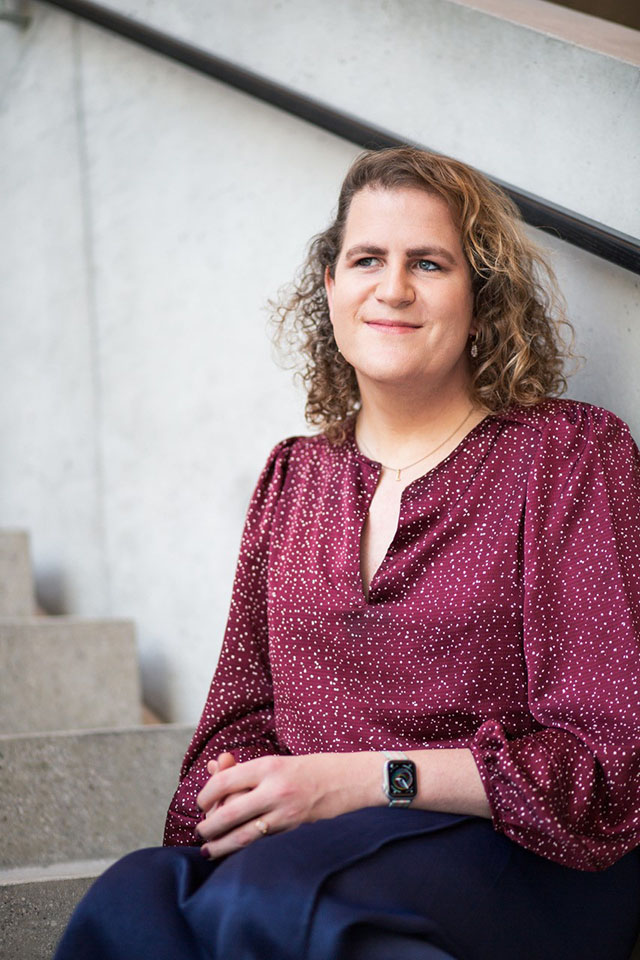
Lea Vink was born in New Zealand and studied clinical psychology and philosophy at Auckland University. After her master’s in Work and Organisational Psychology at Maastricht University, she worked for the UK’s National Air Traffic Services. She is now head of Human Performance Management and Human Factors at Austro Control and a PhD candidate at UM. Vink also has her own consultancy firm and is writing a book titled The neuroscience of being normal. She chairs the CANSO Human Performance working group.
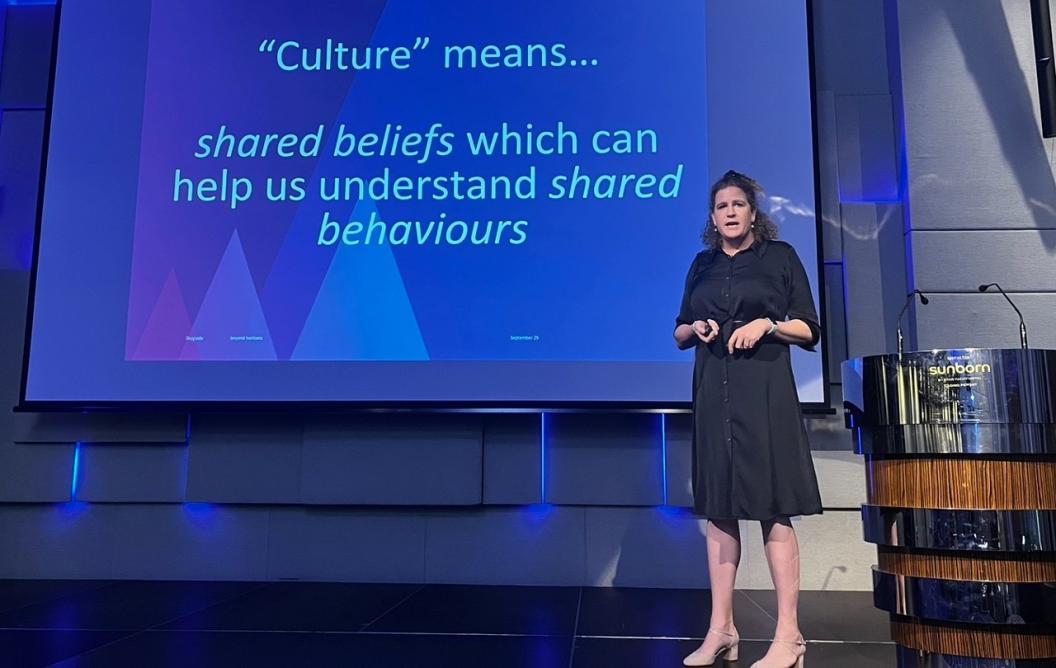
Maastricht roots
The foundation for Vink’s career in organisational psychology was partly laid at UM’s Faculty of Psychology and Neuroscience (FPN). How did she end up there from faraway New Zealand? “The faculty has a good reputation worldwide, and the pragmatic nature of Problem-Based Learning really appealed to me. Besides, I have Maastricht roots. I’ve always wanted to know where my ancestors came from. I had a great time in Maastricht; the city was so lively and warm.”
Just ‘normal’
The bond with Maastricht remains, though she lives in Vienna: Vink is now teaching and doing her PhD at the FPN. ‘‘I want to show today’s students the value of applied psychology. Some academics look down on it because it’s ‘practical.’ But it’s everywhere: in self-driving cars, in spaceships bound for Mars—and in the air-traffic control tower.”
Vink has no plans to move back to Maastricht; she feels at home in Vienna. “I have a really amazing girlfriend. And my impression is that people here are more open and liberal than in the Netherlands. Vienna has a large and growing LGTBQ community. That said, even here many young people struggle with their sexual orientation, which is why I make a point of being open about my experiences. I want to show that trans people are just ‘normal’ people too.”
"Many young people struggle with their sexual orientation, which is why I make a point of being open about my experiences. I want to show that trans people are just ‘normal’ people too."
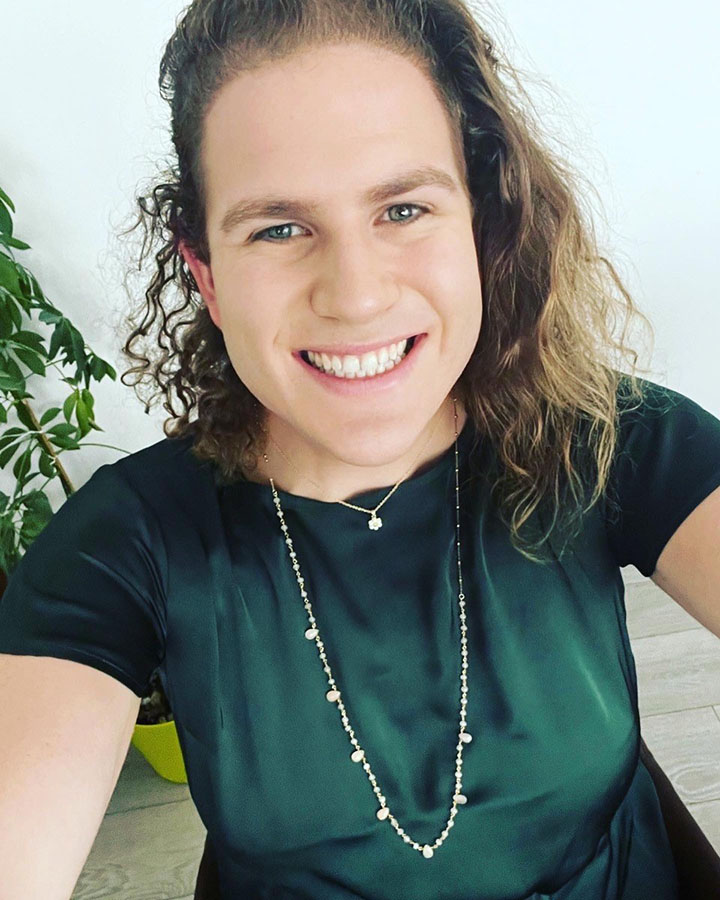
Conference in heels
Unfortunately, not everybody responds well to transgender people. Particularly at conferences abroad, Vink has found herself having to convince people she really is the intended speaker. But the response is usually positive. “I gave a presentation during a conference of the European Association of Aviation Psychology, and for many former colleagues it was the first time they saw me as Lea, in heels. They responded so well, with so much understanding—just like my current colleagues at Austro Control.”
Be honest with yourself
What’s the best thing about being Lea? “I now have more self-confidence and human insight. Having experienced it myself has given me a better understanding of the unequal treatment of women and minorities, for example.” Her message to other UM alumni is “maybe a bit cheesy, but sincere,” she says. “Let’s all be a little kinder to ourselves and the world. It’s unbelievable how many mistakes we make unconsciously, so don’t be too harsh and don’t rush to judgement. I realise it’s not possible everywhere in the world, but really try to be yourself and be honest about it. It’s the most rewarding thing you can do.”
Milou Schreuders (text), Lea Vink (photography)
Also read
-
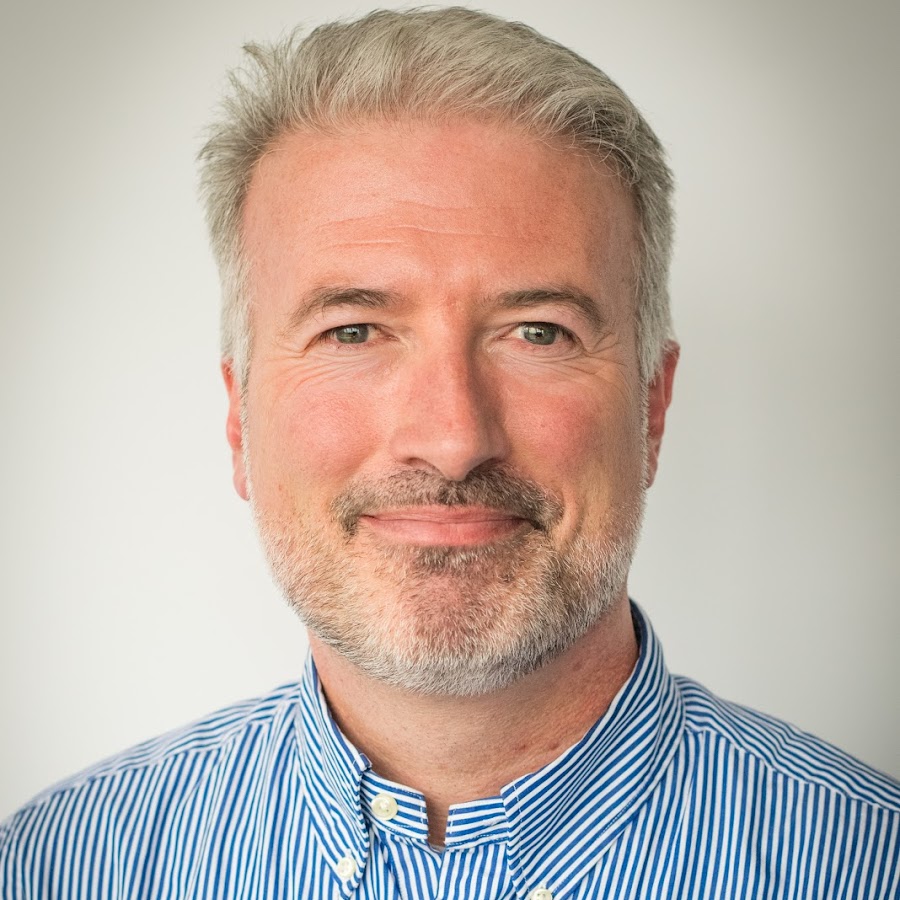
Frederik Claasen, the head of policy at our partner organisation Solidaridad Network on the opportunities and obstacles facing smallholder farmers in their data ecosystems.
-
Anne Roefs was awarded a Vici grant of €1.5 million. The professor of Psychology and Neuroscience of Abnormal Eating, was tossing up between a career as a scientist or a top chef.
-
Sexual harassment in public is becoming a punishable offence. It’s a good idea, says Suzan van der Aa, professor of Criminal Law and Criminal Procedure, but one that doesn’t go far enough. “Sexual harassment in the workplace is common too, and usually has a greater impact on the victims.”
- in Corporate
- in Featured
- in Human interest
- in Students
